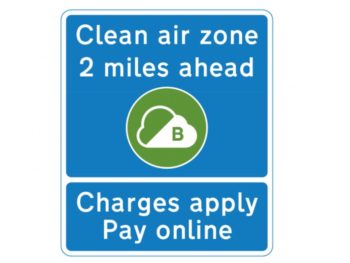More than four out of 10 fleets believe that they will be affected by the introduction of Clean Air Zones (CAZ) in the UK and the expansion of the Ultra-Low Emissions Zone (ULEZ) in London from 2021, and the majority will meet challenges by replacing vehicles.

Research carried out by Arval for its Mobility Observatory found 43% of all UK businesses said they will be impacted by CAZs – currently postponed until 2021 due to the pandemic. But there was some variance as only 27% of businesses with fewer than 10 employees believed there would be an issue compared to more than half (56%) of those with more than 1,000 staff; indicating that the zones will affect larger businesses much more, likely as a result of their operational footprint.
The research also found more than three-quarters (76%) of those affected said they will replace vehicles so they meet the new standards, whereas 27% will find other types of transportation to allow them to continue doing business within the zones, and 27% will make no changes, accepting the impact and cost.
Shaun Sadlier, head of Arval Mobility Observatory in the UK, said: “To us, this is unsurprising. In most places, the introduction of CAZs are really designed to remove the older, less clean technology vehicles from cities and the truth is that because the regulations are relatively straightforward, many fleets are already compliant. Over the next couple of years, just through the normal replacement of vehicles, most should meet the rules.
“It’s also thought-provoking to see that around a quarter are planning to use alternative modes of transport. It would be fascinating to know what those alternatives are, especially whether some fleets are going to be able to make a switch into public transport or other mobility options.”
He added: “Overall, for the people who are putting CAZs into place, the results shown in the research would probably be viewed as a largely positive outcome – an overall reduction in traffic from fleets and a cleaner vehicle.”

